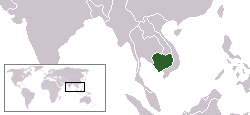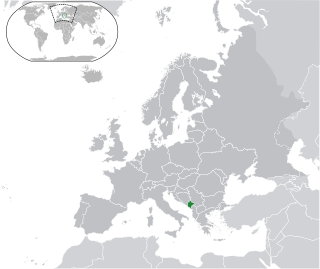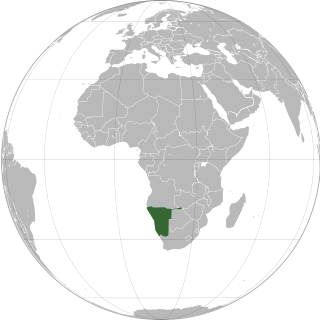
Lesbian, gay, bisexual, and transgender (LGBT) people in Bulgaria face significant challenges not experienced by non-LGBT residents. Both male and female same-sex relationships are legal in Bulgaria, but same-sex couples and households headed by same-sex couples are not eligible for the same legal protections available to opposite-sex couples. Discrimination on the basis of sexual orientation has been banned since 2004, with discrimination based on "gender change" being outlawed since 2015. In July 2019, a Bulgarian court recognized a same-sex marriage performed in France in a landmark ruling. For 2020, Bulgaria was ranked 37 of 49 European countries for LGBT rights protection by ILGA-Europe. Like most countries in Central and Eastern Europe, post-Communist Bulgaria holds socially conservative attitudes when it comes to such matters as homosexuality and transgender people.
Ayn Rand, author and developer of Objectivism, held controversial views regarding homosexuality and gender roles. Although Rand personally viewed homosexuality negatively, considering it immoral and disgusting, she endorsed non-discrimination protection for homosexuals in the public sphere while opposing laws against discrimination in the private sector on the basis of individual rights.

Lesbian, gay, bisexual, and transgender (LGBT) people in South Africa have the same legal rights as non-LGBT people. South Africa has a complex and diverse history regarding the human rights of LGBTQ people. The legal and social status of between 400,000 to over 2 million lesbian, gay, bisexual, transgender and intersex South Africans has been influenced by a combination of traditional South African morals, colonialism, and the lingering effects of apartheid and the human rights movement that contributed to its abolition.

Canadian lesbian, gay, bisexual, and transgender (LGBTQ) rights are some of the most extensive in the world. Same-sex sexual activity, in private between consenting adults, was decriminalized in Canada on June 27, 1969, when the Criminal Law Amendment Act, 1968–69 was brought into force upon royal assent. In a landmark decision in 1995, Egan v Canada, the Supreme Court of Canada held that sexual orientation is constitutionally protected under the equality clause of the Canadian Charter of Rights and Freedoms. In 2005, Canada became the fourth country in the world, and the first in the Americas to legalize same-sex marriage. In 2022, Canada was the third country in the world, and the first in North America, to fully ban conversion therapy nationwide for both minors and adults.

Lesbian, gay, bisexual, and transgender (LGBT) rights in the United States are among the most advanced in the world, with public opinion and jurisprudence changing significantly since the late 1980s.

Lesbian, gay, bisexual, and transgender (LGBTQ) people in Cambodia face legal challenges not experienced by non-LGBT residents. Although same-sex sexual activity is legal in Cambodia, it provides no anti-discrimination protections for LGBT people, nor does it prohibit hate crimes based on sexual orientation and gender identity.

Lesbian, gay, bisexual and transgender (LGBT) people in the Bahamas have limited legal protections. While same-sex sexual activity is legal in the Bahamas, there are no laws that address discrimination or harassment on the account of sexual orientation or gender identity, nor does it recognize same sex unions in any form, whether it be marriage or partnerships. Households headed by same-sex couples are also not eligible for any of the same rights given to opposite-sex married couples.

Lesbian, gay, bisexual, and transgender (LGBT) rights in Costa Rica have evolved significantly in the past decades. Same-sex sexual relations have been legal since 1971. In January 2018, the Inter-American Court of Human Rights made mandatory the approbation of same-sex marriage, adoption for same-sex couples and the removal of people's sex from all Costa Rican ID cards issued since October 2018. The Costa Rican Government announced that it would apply the rulings in the following months. In August 2018, the Costa Rican Supreme Court ruled against the country's same-sex marriage ban, and gave the Legislative Assembly 18 months to reform the law accordingly, otherwise the ban would be abolished automatically. Same-sex marriage became legal on 26 May 2020.

Lesbian, gay, bisexual, and transgender (LGBT) people in Montenegro face legal challenges not experienced by non-LGBT residents. Both male and female same-sex sexual activity are legal in Montenegro, but households headed by same-sex couples are not eligible for the same legal protections available to opposite-sex married couples.

Lesbian, gay, bisexual, and transgender (LGBT) people in Albania face legal challenges not experienced by non-LGBT residents, although LGBT people are protected under comprehensive anti-discrimination legislation. Both male and female same-gender sexual activities have been legal in Albania since 1995, but households headed by same-sex couples are not eligible for the same legal protections available to opposite-gender couples, with same-sex unions not being recognized in the country in any form.

Lesbian, gay, bisexual, and transgender (LGBT) people in Armenia face legal and social challenges not experienced by non-LGBT residents, due in part to the lack of laws prohibiting discrimination on the grounds of sexual orientation and gender identity and in part to prevailing negative attitudes about LGBT persons throughout society.

Lesbian, gay, bisexual, and transgender (LGBT) people in Botswana face legal issues not experienced by non-LGBTQ citizens. Both female and male same-sex sexual acts have been legal in Botswana since 11 June 2019 after a unanimous ruling by the High Court of Botswana. Despite an appeal by the government, the ruling was upheld by the Botswana Court of Appeal on 29 November 2021.

Lesbian, gay, bisexual, and transgender (LGBT) rights in Namibia have expanded in the 21st century, although LGBT people still have limited legal protections. Namibia's colonial-era laws criminalising male homosexuality were historically unenforced, and were overturned by the country's High Court in 2024.

LGBT movements in the United States comprise an interwoven history of lesbian, gay, bisexual, transgender and allied social movements in the United States of America, beginning in the early 20th century. A commonly stated goal among these movements is social equality for LGBT people. Some have also focused on building LGBT communities or worked towards liberation for the broader society from biphobia, homophobia, and transphobia. LGBT movements organized today are made up of a wide range of political activism and cultural activity, including lobbying, street marches, social groups, media, art, and research. Sociologist Mary Bernstein writes: "For the lesbian and gay movement, then, cultural goals include challenging dominant constructions of masculinity and femininity, homophobia, and the primacy of the gendered heterosexual nuclear family (heteronormativity). Political goals include changing laws and policies in order to gain new rights, benefits, and protections from harm." Bernstein emphasizes that activists seek both types of goals in both the civil and political spheres.

Lesbian, gay, bisexual, and transgender (LGBT) rights in Scotland are generally in line with the rest of the United Kingdom, which have evolved extensively over time and are now regarded as some of the most progressive in Europe. In both 2015 and 2016, Scotland was recognised as the "best country in Europe for LGBTI legal equality".

In the United States, lesbian, gay, bisexual, and transgender (LGBTQ) people have a long history, including vibrant subcultures and advocacy battles for social and religious acceptance and legal rights.

Lesbian, gay, bisexual, transgender, and queer (LGBTQ) people in the U.S. state of Georgia enjoy most of the same rights as non-LGBTQ people. LGBTQ rights in the state have been a recent occurrence, with most improvements occurring from the 2010s onward. Same-sex sexual activity has been legal since 1998, although the state legislature has not repealed its sodomy law. Same-sex marriage has been legal in the state since 2015, in accordance with Obergefell v. Hodges. In addition, the state's largest city Atlanta, has a vibrant LGBTQ community and holds the biggest Pride parade in the Southeast. The state's hate crime laws, effective since June 26, 2020, explicitly include sexual orientation.

Lesbian, gay, bisexual, and transgender (LGBT) rights in the Northern Mariana Islands have evolved substantially in recent years. Same-sex marriage and adoption became legal with the Supreme Court's ruling in the case of Obergefell v. Hodges in June 2015. However, the U.S. territory does not ban discrimination based on sexual orientation and gender identity, except in relation to government employees. Gender changes are legal in the Northern Mariana Islands, provided the applicant has undergone sex reassignment surgery.
This article gives a broad overview of lesbian, gay, bisexual and transgender (LGBT) history in Canada. LGBT activity was considered a crime from the colonial period in Canada until 1969, when Bill C-150 was passed into law. However, there is still discrimination despite anti-discrimination law. For a more detailed listing of individual incidents in Canadian LGBT history, see also Timeline of LGBT history in Canada.
LGBTQ+ conservatism in the United States is a social and political ideology within the LGBTQ+ community that largely aligns with the American conservative movement. LGBTQ+ conservatism is generally more moderate on social issues than social conservatism, instead emphasizing values associated with fiscal conservatism, libertarian conservatism, and neoconservatism.

















